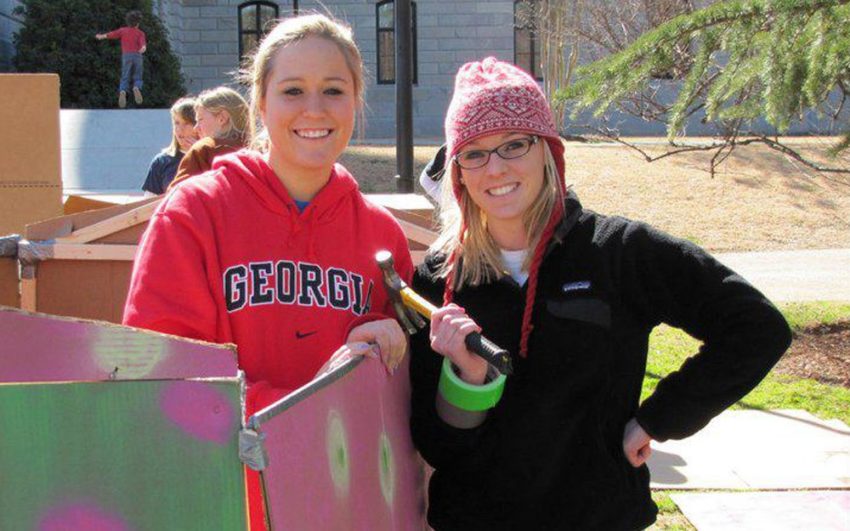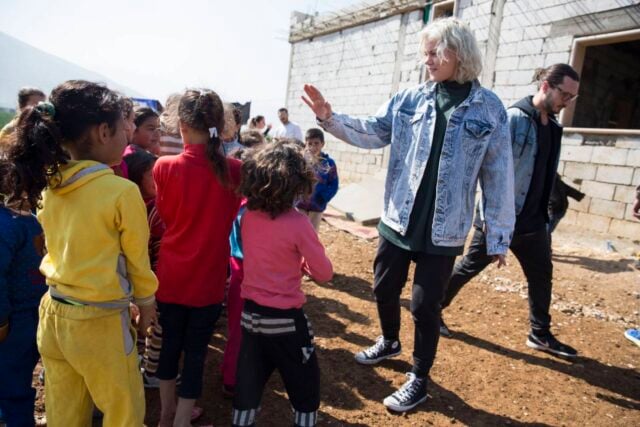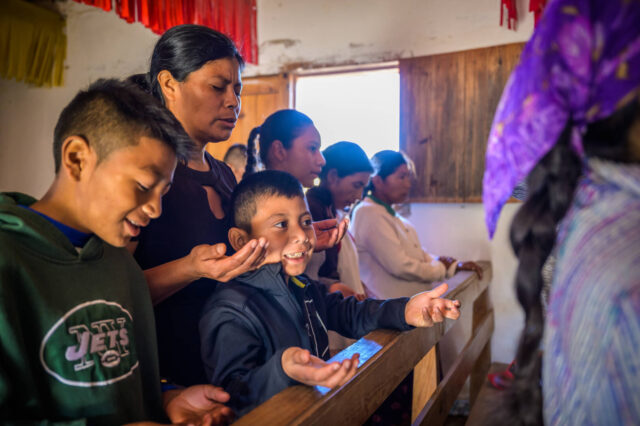An Episcopal minister, who has helped raise almost $1 million for the hungry by encouraging young people to fast for 30 hours, cares little about the big money raised.
Brian Silldorff, a youth minister at Trinity Episcopal Cathedral in Columbia, South Carolina, says raising awareness about hunger is more critical than raising cash.
“When we stopped worrying about how much money we raised and focused on how much awareness we raised, we went from raising $12,000 a year to $40,000 the next year and $80,000 the year after that,” he says.
Spreading the word
For the last 13 years, Brian has led youth participants in World Vision’s 30 Hour Famine both at Trinity and at his former church, St. John’s Episcopal Church in Charlotte, North Carolina. He plans another big youth event during the upcoming national Famine weekend beginning Feb. 22.
Brian says his job is to help young people spread the word about global hunger. About 6,600 children die every day of hunger-related causes, but 20 years ago, the figure was double that. Through initiatives like the 30 Hour Famine, hunger is being reduced around the world.
“Students can then say, ‘I’m doing something about it, and I want to offer you the opportunity to come on board — through sponsoring me, through praying for me,’” he says.
By fasting, young people are able to more readily identify with children who go to bed hungry every night.
But Brian says the parallels don’t stop there. Years ago, a member of his youth group pointed out that the hungry not only go without food but are also unlikely to sleep in a comfortable bed every night.
Since then, Brian has organized a cardboard village event during the Famine weekend to emulate the plight of the homeless and refugees.
‘We are with the homeless’
On Feb. 23, about 60 young people will camp out in cardboard boxes in the grounds of the cathedral situated in downtown Columbia.
They will break their fast in the early hours of the morning by joining the lines of homeless people who turn up at the church each Sunday for breakfast.
“I could take them to IHOP, which is just one block away, but that would not nearly be as impactful,” he says.
“We are with the homeless. We are all one when we are ending the event.”
Over the years, Brian has noticed that the 30 Hour Famine weekend has had an enormous long-term impact on the students in his group as well. Many have gone on to occupy the philanthropy chairs in their student organizations in college and others have rethought their vocation in life. They also no longer use derogatory terms to describe the homeless.
Brian says, “They look them in the eye and say ‘hello’ because they have put a name and a face to homelessness.”
Get more information on the 30 Hour Famine and its impact on the lives of teens and leaders in church youth ministries.


